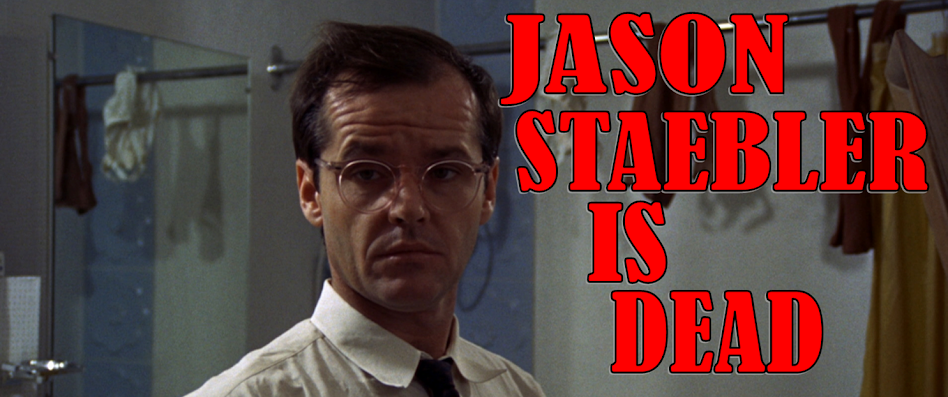There’s a moment midway through Pedro Costa’s phantasmagoric documentary Ne Change Rien in which French actress/chanteuse Jeanne Balibar (who is readying one of a seemingly endless series of takes of a song for her 2006 album Slalom Dance) is approached by a studio tech with a new microphone. As he places it in front of her, he notes the challenge of picking one out of this roomful of microphones, but that ultimately “finding is searching”. Perhaps unwittingly, he’s summed up much of the thematic drive of the film, and of the artistic process in general.
Ne Change Rien might not ever be coming to a theater near you. If you don’t live near a cultural arts center with a respectable film series (and in some cases, even if you do), you might not get a chance to see this astonishing film projected. And that’s a shame, because it’s a tremendous and engrossing meditation that expertly bridges the gap between popular culture and highbrow fare.
The much feted Costa, whose works have slowly begun to see more and more light on these shores, has crafted what on the surface seems like a fly on the wall document of a studio session. But what he accomplishes with his high contrast black and white camerawork and languid, almost non-existent pacing is a portrait of the ethereal beauty that art can produce and the often mind-numbing process that produces such beauty. This repetition is most notable during an almost reel-long take in which Balibar and guitarist/collaborator Rodolphe Burger try to nail down the tempo for a vocal passage of the song “These Days.” With the bass and drum tracks playing on a loop in the background, Burger tries to acclimate Balibar to their pacing, but she encounters problems with consistently keeping in time, repeatedly singing the same lyrics over and over but never quite locking things in. The scene is at once maddening, hypnotic and brutally honest, but when, at the climax of the scene, Burger and the rest of the band establish their full instrumentation for the first time, the effect is exhilarating, shattering.
Balibar repeats this process several times throughout the film, in the studio, but also in preparations for a stage role (the end result of which is never fully glimpsed, as Costa trains his camera on the piano accompanist just off stage). During these stage rehearsals, her luminous face fills the screen for another long take, in which an off-screen vocal coach hones her operatic delivery of a verse. By focusing the camera only on a tight shot of Balibar’s face from the neck up, Costa is able to capture her steadily growing, yet still even-handed, frustration as she tries to adjust her pronunciation and intonation. It serves as a neat mirror image of the “These Days” scene, but in a narrative sense it’s also a great piece of acting.

Costa seemingly takes some inspiration for Ne Change Rien from Godard’s One Plus One (a.k.a. Sympathy For the Devil), in which the arch-provocateur balanced agit prop political skits with a summary of the Rolling Stones’ recording sessions for their Bulgakov-inspired classic. Those studio scenes also capture the natural tedium of the process, but the evolution of the song, from druggy, minimalist samba to the rollicking final version also parallels the inherent joy of the search that Costa’s mike tech so accurately praises. But I was also reminded of another Stones film from that era: the Maysles Brothers’ Gimme Shelter, which features many great long takes of band members’ faces as they react to audio recordings. In particular, Charlie Watts’s eternally deadpan features blossom with a cornucopia of subtle emotional shifts, the most reticent of these rock hellcats giving the most masterly “performance” of the film. Those same long takes of Balibar achieve a similar effect.
Costa’s greatest strength in Ne Change Rien is how he cloaks the action of recording and performance in deep shadows. The film’s opening performance of Kris Jensen’s “Torture” is shot in a single take; Balibar and the band are half-lit ghosts at the bottom of the frame, but the top half is illuminated by the hazy orbs of the stage lights, appearing at once like stars, flying saucers or pinholes to heaven. Several scenes later, the band lunges into their next song enmeshed in total darkness, only for Balibar’s tightly framed profile to slowly emerge into a faint light, her lips caressing the microphone as she breaks into the first verse. In this simple shot, Costa conjures an image that’s intensely erotic and sensual.
But ultimately, the film comes back to that arduous process. From a purely narrative sense, Balibar spends the duration of the running time in a state of frustration, trying to find the perfect phrasing, the most concise timing, the epochal blending of voices for a duet. During the next to last reel, she seemingly completes a perfect take, only for Burger to debate whether his guitar tone was the right one to use. Later, as the band finally listen to the full playback of a track, they’re able to cut loose and mildly celebrate, but even Balibar follows that with some doubt about her vocals. It’s only in the last scene, in which the group runs through an impromptu cut in Balibar’s dressing room, that they achieve some form of temporary closure. But therein lies the irony of the film’s title, for much like the artistic process, nothing is stable throughout the journey towards the finished work. And you get the feeling that Balibar, Rodolphe and their collaborators wouldn’t have it any other way.


No comments:
Post a Comment